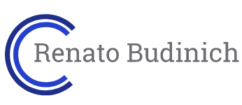I’ve heard some valid criticism of blockchain tech: it is a very inefficient database, there’s nothing substantially new people are doing with it, DeFi is self-referential. All of these have some truth in them. On top of this the industry is over-hyped and inundated by startups with millions in funding and flashy websites with a lot of buzzwords. This makes the problem worse because information on the real tech and innovation is often buried under layers of marketing material.
Blockchain is hard and the tech is still in a primitive phase, often still subject to active research. I think this is a new era of computation and we are still figuring out the paradigms — of course the quality of the applications is going to be all over the place. Think how cumbersome it must have been programming computers with punched cards. I’m sure people were promised a brand new era of automation even back then! But it took decades to get there, with many bumps on the road.
At their core blockchains work by a clever combination of cryptography and game theory. I find that many engineers critic of blockchain often underestimate the importance of the latter. The economic incentives are used in a blockchain to create a very hostile environment: nodes compete to get rewards. As a side effect they run the infrastructure of the blockchain for others to use. While cryptography is essential to prevent cheating, it is the economic aspect that makes it appealing for the nodes.
Blockchains are often referred to as trustless systems: they are a novel decentralized computation model where the user does not have to trust any single actor. I think the term is slightly misleading because trust is still required: instead of a person or a company, the user is trusting the architecture of this mathematical, cryptographic and economic system.
This would be a perfect fit for “applications” typically run by governments such as: identity certification, tax systems, tenders, online voting and of course the banking system. Because of the potential for cheating, for all these you would rather trust a [trustless] system than a company or a governmental agency. The system can be designed in the open and everyone can check its fairness.
I think blockchain is eventually going to be the backend tech for many of these use-cases. As with all backend technologies, there won’t be very visible changes for the end-user. It will probably just amount to using a new app or website. Right now however governments are still fighting a tech they don’t understand and people are finding other use-cases to make something with it. And yes many ride the hype wave and don’t really add value.

